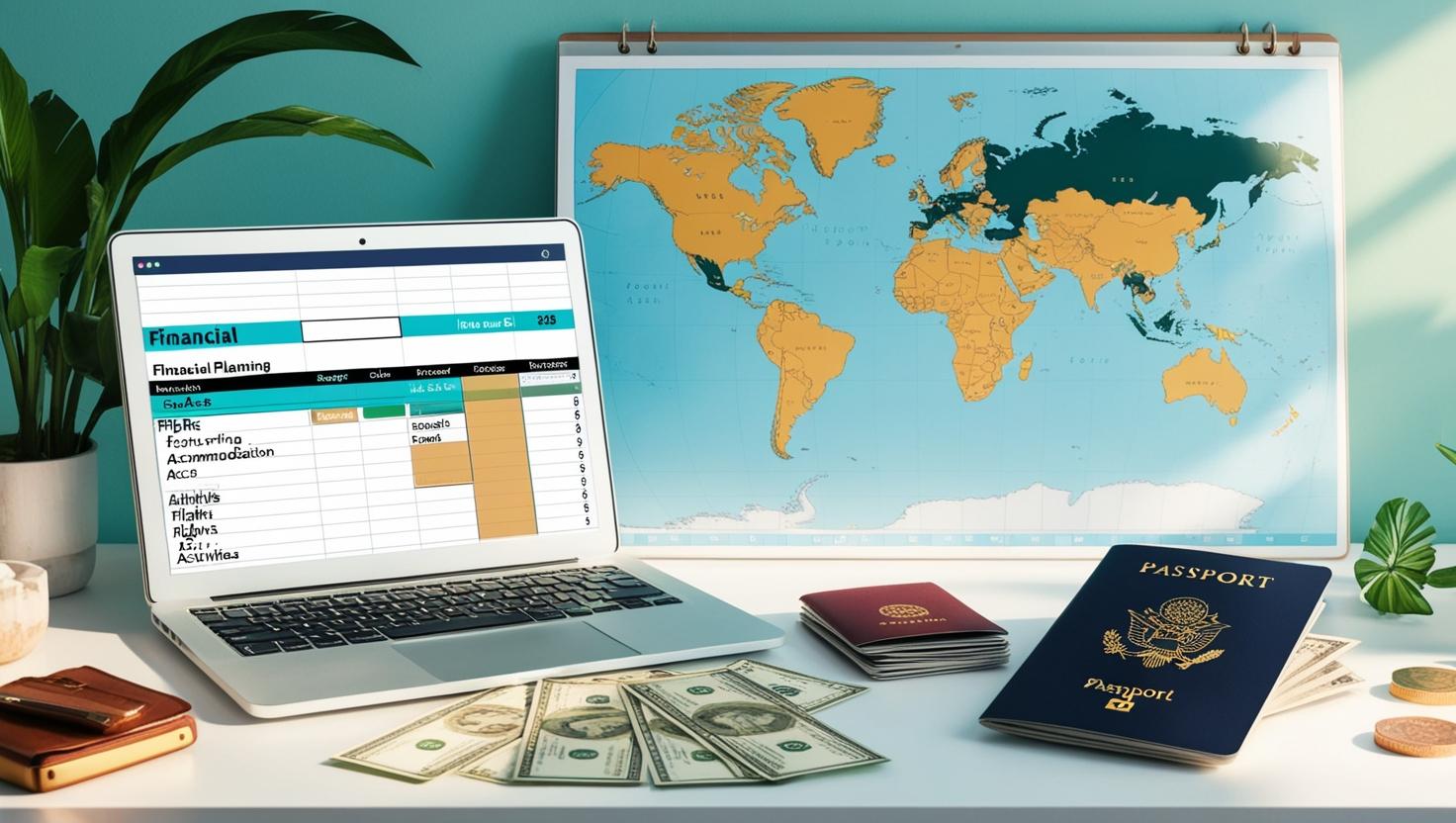Traveling is one of the most rewarding experiences, but without proper financial planning, it can become stressful and expensive. Whether you’re saving for a weekend getaway or a long-term international trip, having a solid financial plan can help you enjoy your journey without debt or financial regrets.
In this guide, we’ll go through step-by-step strategies to help you budget, save, and spend wisely while traveling.
1. Define Your Travel Budget
Before you start saving, you need to know how much your trip will cost.
Choose Your Destination – Some countries are more expensive than others. Research the cost of living in your chosen destination.
Decide on the Duration – A one-week trip costs much less than a month-long adventure.
Consider Your Travel Style – Will you stay in luxury hotels, mid-range accommodations, or budget hostels?
Create a Basic Budget Estimate
Make a list of expected expenses:
- Flights/Transportation
- Accommodation
- Food & Drinks
- Attractions & Activities
- Local Transport (Uber, taxis, rental cars, trains, etc.)
- Shopping & Souvenirs
- Travel Insurance & Emergency Fund
2. Set a Savings Goal
Once you have an estimated budget, set a clear savings goal and deadline.
Example: If your trip costs $2,000 and you want to travel in 10 months, you need to save $200 per month.
To stay on track:
✅ Open a dedicated savings account for travel
✅ Automate transfers to your travel fund each month
✅ Track your progress with apps like Mint or YNAB
3. Cut Expenses to Save Faster
The more you save, the sooner you can travel! Here are some ways to reduce expenses:
Reduce Eating Out – Cook at home and save restaurant money for your trip.
Cancel Unused Subscriptions – Do you really need five streaming services?
Use Public Transport – Cut gas and parking expenses.
Save on Utilities – Turn off lights, use energy-efficient appliances, and lower your bills.
Small daily savings add up over time!
4. Find Ways to Earn Extra Money for Your Trip
If your regular income isn’t enough, consider boosting your travel fund with extra cash.
Freelancing – Offer skills like writing, graphic design, or social media management.
Sell Unused Items – Clothes, electronics, or furniture can be sold online.
Work Gig Jobs – Uber, DoorDash, or dog walking can add extra income.
Teach Online – English tutoring or online courses can generate passive income.
Even an extra $100 per month can make a big difference!
5. Book in Advance for Better Deals
To save money, start booking early.
Flights: Buy tickets at least 2-3 months in advance for the best prices.
Hotels & Rentals: Use comparison sites like Booking.com or Airbnb.
Transport Passes: Many cities offer discount travel cards for tourists.
Tip: Be flexible with travel dates to find the best deals!
6. Use Travel Reward Programs
Take advantage of travel points and rewards to cut costs.
Frequent Flyer Miles – Use airline loyalty programs to get free flights.
Hotel Points – Many credit cards offer hotel rewards for bookings.
Cashback Credit Cards – Earn cashback on travel-related purchases.
If you travel often, these programs can save you thousands of dollars over time.
7. Create a Daily Spending Plan for Your Trip
Once you arrive, stick to a budget to avoid overspending.
Set a daily spending limit based on your overall budget.
Use Cash Envelopes – Withdraw money for daily expenses and avoid overspending.
Track Expenses in an App – Apps like Trail Wallet or TravelSpend help you stay within budget.
8. Prepare for Unexpected Expenses
Even the best plans can go wrong. Always have an emergency fund for:
- Medical emergencies
- Last-minute transportation changes
- Extra accommodation nights
Tip: Always have at least 10-20% extra saved for unexpected expenses.
9. Look for Free or Budget-Friendly Activities
Travel doesn’t have to be expensive to be fun!
Visit Free Museums & Attractions – Many cities offer free days for tourists.
Explore on Foot – Walking tours are a great way to see a city for free.
Eat Like a Local – Street food and small restaurants are cheaper than tourist spots.
10. Enjoy Your Trip Without Financial Stress
A well-planned budget allows you to focus on enjoying the experience instead of worrying about money.
Final Checklist Before Traveling:
✅ Have enough savings for your trip + emergency fund
✅ Book transportation, hotels, and activities in advance
✅ Set a daily budget and stick to it
✅ Use travel rewards and discounts whenever possible
Final Thoughts
Traveling doesn’t have to be expensive if you plan wisely. By setting a budget, saving consistently, and using smart spending habits, you can explore the world without financial stress.
Start planning today, and make your dream trip a reality! ✈️

